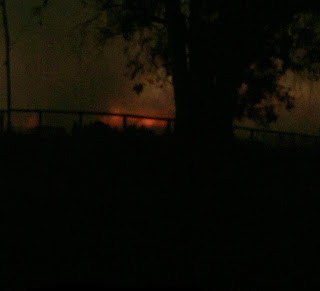Zen koans, what and how?
Koan: The coin lost in the
river is found in the river.
Koan: A thousand mountains are covered with snow.
Koan: A thousand mountains are covered with snow.
Koan: No
There are sayings, snippets of conversation, questions, parts
of poems and even stories that are called Zen koans. Koans serve as a way of
opening up your experience of life, they undermine the way you usually think
about things, and reveal surprising or beautiful aspects of reality.
The Zen koan schools began a millennium ago and the koans are to be found in collections with titles like “The Blue Cliff Record” or “The Gateless Gate”. Koans are meant to change the way you understand things in a real and irreversible way, like seeing through a door that had previously been closed.
The Zen koan schools began a millennium ago and the koans are to be found in collections with titles like “The Blue Cliff Record” or “The Gateless Gate”. Koans are meant to change the way you understand things in a real and irreversible way, like seeing through a door that had previously been closed.
Is it special, this combination of words? Are the questions of our lives koans?
Koans traditionally are limited to those written down long ago, but in reality, there are infinite koans. What about your life questions, like the tough decision about what to do with work or relationship that you keep returning to? Probably not, since questions like that tend to go around and around on an endless hamster wheel of predictable thinking.
A koan will allow you to approach those problems and decisions from the side, or from underneath, by taking away the thoughts that confine you. One woman working with a koan noticed that she had always thought of herself as a worrier. She could see that was just a part of her nature, the way the autumn leaves were red. And once she stopped worrying about that, everything else got easier, too.
So even if you are the sort of person who does
everything your own way, just start by using the koans that are offered and
take the ride.
There are many different ways of working with koans, but what I’m suggesting here is that for the time being you simply take a koan on as a companion, an object of attention, something to return to when your mind has been off somewhere making trouble for itself. So you can choose, or sometimes a koan will stick to you, like a burr in your sock, and it’s not even volitional. The koan will disrupt the endless circle of thoughts, of planning for disaster or complaining or blaming or defining, predicting and explaining. You can refer to it, like a compass or an amulet or a friend.
The first thing to do is to notice when you’re uncomfortable
or suffering. You may do this first during meditation, because there you’ve
assigned yourself the task of paying attention. Your mind will be chewing at a
thought or an emotion like a dog with a bone - sadness or anger or boredom,
with some sort of explanation, or some image. And you’ll notice it’s not much
fun. You can bring the koan in here, try this one: “Sickness and medicine heal
each other, the whole world is medicine.” Just say it to yourself, all of it,
or part of it, the bit that sticks.
Your mind will make connections or shift itself around, sometimes
your body will, too. Be curious about what happens, and remember that you can
rely on the koan. You don’t have to worry it or get it right. Just come back to
it. Make note of when something loosens for you. You’ll know it’s working
because things will seem less difficult. Also make note if something becomes
really intense, because sometimes the koan will bring some internal conflict
into sharp focus. You’ll start to see the absurd things you’ve been letting
yourself believe and the effect of those beliefs. Either way, something gets
clearer, and you can trust the process.
So you can keep sitting quietly, paying attention for a bit
every day, noticing simple things like your body and sensations, and bring the
koan to mind. “Sickness and medicine heal each other, the whole world is
medicine.”
And try one more thing this time. At a time when you’re not
officially meditating, when you notice your mind has gone somewhere and you’re
not enjoying it, say you’re stuck in traffic, bored, annoyed or in pain…bring
the koan to mind here, too. The coin lost in the river is found in the river.
See what happens.
Rachel Boughton
www. santarosazen.org
See what happens.
Rachel Boughton
www. santarosazen.org



Comments
Post a Comment